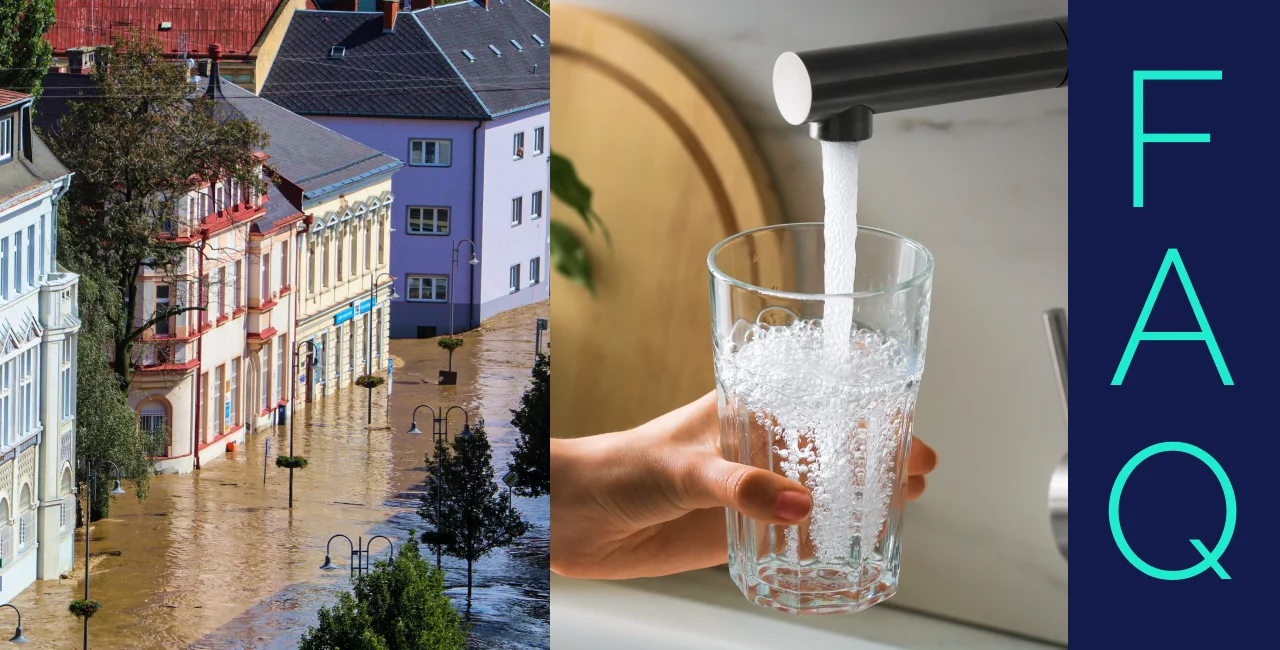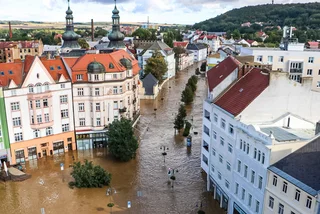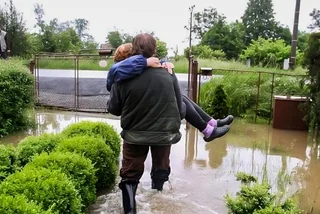The flood levels and danger in Czechia are decreasing, but the government and local authorities are still urging people in flood-affected areas to exercise caution. Here’s a brief overview of ongoing closures and restrictions, along with expert predictions on when the situation might improve.
Tap water at home: Can I drink it?
It depends. If you live in an area severely affected by the floods (see the red areas on this map), avoid drinking water straight from the tap, advises the country’s chief hygienist, Barbora Macková. She recommends boiling tap water before drinking it and using bottled or imported cistern water instead of well water. Macková noted on Tuesday that there is currently no indication that the floods in Czechia will impact water treatment plants or the quality of the water supply but cautioned that it’s better to err on the side of caution.
PARTNER ARTICLE
Will vaccines be available for people exposed to flood water?
Yes. Health Minister Vlastimil Válek has announced plans for free, voluntary hepatitis A vaccinations in flood-affected areas. Authorities are also working to ensure medicine supplies and regional health stations are preparing to test local wells. Válek clarified that the vaccinations will target specific outbreak zones rather than entire regions. Residents are advised to consult their local municipality for further information.
Can I get financial aid from the government?
Yes. If you have been affected by the floods, you can receive emergency aid of up to CZK 72,900 per household. To qualify for this assistance, you need to have photos of the damage on your mobile phone, necessary documents, and a written statement. The aid will be distributed in cash by mobile teams of labor office employees, starting from Tuesday. This assistance is intended for those who have lost their homes or household items due to the floods. Apply online via the Labor Office website.
Are parts of Prague still off-limits?
Yes. Prague’s flood commission met on Tuesday Prague’s flood commission met on Tuesday to assess the situation, maintaining high-alert status due to the elevated flow of the Vltava River. While water levels are gradually decreasing, flood measures will remain in place throughout the week. Public areas along the river and navigation are closed, and the city is coordinating material aid for affected regions. Prague is also addressing infrastructure issues, including a major water line break.
Is it safe to visits parks?
It depends. As of Wednesday, Sept. 18, Prague's forestry management has advised visitors to the parks to avoid areas with mature trees that are in waterlogged, swampy, and sloping locations. Visitors should be extra cautious as there is still a risk of falling trees or tree parts due to the soggy terrain. Prague Zoo has announced it is reopening, and the Prague Botanical Garden has also opened. The Prague Exhibition Grounds are open, but some areas remain closed including the lower part and the pool parking lot.
Is it safe to visit Prague’s riverbanks yet?
No. Despite improvements in weather, residents are urged to avoid watercourses, limit outdoor activities, and remain cautious. Náplavka remains inaccessible to the public, with the Prague Embankments Association strongly encouraging people to respect the ban on entering the river and warning against so-called “flood tourism.” Riverbanks are slippery, and the current is powerful. The city’s flood commission will reconvene today (Wednesday) to review updates. Follow the City of Prague website to stay informed.
Are there still public transport disruptions?
Yes. According to the City of Prague, the Muzeum metro station is fully operational from today. However, the Petřín cable car will be unavailable until the end of this week. All ferries in the capital remain closed. Tram routes 2 ,3, 17, 21, 27, 92 are either diverted or shut due to the floods; these lines straddle the Vltava. Prague Public Transport Company website.
Can I help flood victims?
Yes. One way is via donations: Charita Česká republika offers financial assistance, alternative accommodation, and psychological support, for example. Other organizations, such as People In Need, the Czech Red Cross, and the Adra Foundation also accept financial donations that go straight to affected communities.
If you want to volunteer yourself and get involved with assistance, you can register yourself with the National Volunteer Center of the Czech Republic. The Diakonie ČCE association also accepts volunteers for helping to deal with the flood aftermath.
Is it safe to travel throughout Czechia?
No. The flood alerts remain active, and heavy rainfall has damaged many communities. Approximately 40 railway lines in the Czech Republic, mainly in Moravia, are closed due to the bad weather. Martin Kavka, a spokesman for the Railway Administration’s firefighters, stated that the Prague-Ostrava railway corridor is particularly affected. Firefighters advise people to avoid traveling unless necessary. Check the latest travel updates on the Czech Railways website and highway news to see if your essential journey may be affected.
When will Czechia’s crisis be over?
According to the Czech Hydrometeorological Institute, the current flood danger level is low in Prague. While Vltava water levels are expected to remain elevated until the end of the week, no further rainfall is expected anywhere in the country for the rest of this working week. High levels of danger still apply to pockets of the country, and the highest-risk flood alert will be active even on Friday in regions such as Opava (Moravia-Silesia), Děčín (Ústí nad Labem), and Tábor (South Bohemia).
#vystrahaâš ï¸ Aktualizace výstrahy ÄŒHMÚ:
— ÄŒeský hydrometeorologický ústav (ÄŒHMÚ) (@CHMUCHMI) September 18, 2024
â„¹ï¸ Tato výstraha aktualizuje hydrologickou situaci a pÅ™edpovÄ›Ä vývoje na zasažených tocÃch.
🌊 NejvÃce pÅ™ekroÄená úroveň pro 3. SPA bude i nadále na Lužnici, která je na svém stÅ™ednÃm a dolnÃm úseku stále vysoko nad 3. SPA.
🌊 3. SPA bude… pic.twitter.com/dGKnBbJK00












 Reading time: 4 minutes
Reading time: 4 minutes 































